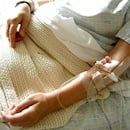
A Lesson on Nursing Professional Development (NPD)
Nurses have a new reason to celebrate! The Association for Nursing Professional Development (ANPD) has recently declared September 20-26 as Nursing Professional Development (NPD) Week (ANPD, 2015). A full five days to honor, celebrate and support nurses who have chosen to dedicate themselves to clinical education, research, and academia for nurses and future nurses.
Registered Nurses who work in NPD fill many roles, often at the same time. They are clinical nurse educators, responsible for maintaining a competent nursing staff in healthcare facilities, as well as facilitating theory-to-practice as new graduate nurses enter the profession. They may work as college professors, shaping the minds of student nurses as well as fellow RNs looking for potential career advancement. Finally, NPD RNs can choose to work in research, bringing evidence-based practice to the forefront, while adding new knowledge to nursing practice. But within their chosen role, these RNs are all servant leaders, who provide both professional support and mentoring to nurses with whom they work. (Swihart & Johnstone, 2010).
Nursing Professional Development Specialist Education:
In addition to having a commitment to lifelong learning, RNs working in NPD, are licensed registered nurses with graduate degrees (NNSDO, 2010). Coursework may include such topics as adult learning theories, learning styles, curriculum design and development, program evaluation, learning needs assessments, and healthcare policy/reform -- just to name a few (Nurse Source, 2015). A master’s degree is the minimum requirement for teaching in a college or university.
Where Can RNs in NPD Find Work?
A quick pulse check on the locations where NPD experts practice, identifies several areas of opportunity. Like other nursing specialties, NPD specialists are subject matter experts. Their expertise can be seen and felt in a variety of clinical settings, including hospitals, clinics, community health, and home care. They can also be found working in colleges and universities –either teaching at traditional brick-and-mortar campuses or digitally, via online education (Nurse Source, 2015). The influence of the NPD-trained RN is reflected in policies and procedures, competencies, evidence-based practice, and research, as well as in implementation, project management, continuing education, and cybergogy, or learning through technology (Swihart & Johnstone, 2010).
The role of the Nursing Professional Development expert is one that is continuing to evolve. It is complex and ever-changing. Staff nurses, hospital administrators, directors, and managers may not fully understand and appreciate all that NPD specialists are capable of, yet the landscape appears to be changing. Let’s celebrate these hard-working professionals with the recognition and support they have earned. Happy Nursing Professional Development Week!!
References:
American Association of Colleges of Nursing [AACN]. (2015). Master's Education in Nursing and Areas of Practice.
National Nursing Staff Development Organization [NNSDO]. (2010). Nursing Professional Development. Silver Spring, Maryland: American Nurses Association.
Nurse Source (2015). Nurse Educator. Nurses for a Healthier Tomorrow.
Swihart, D. & Johnstone, D. (2010). What does a Nursing Professional Development Specialist (Nurse Educator) do? American Nurse Today, 5 (8).




